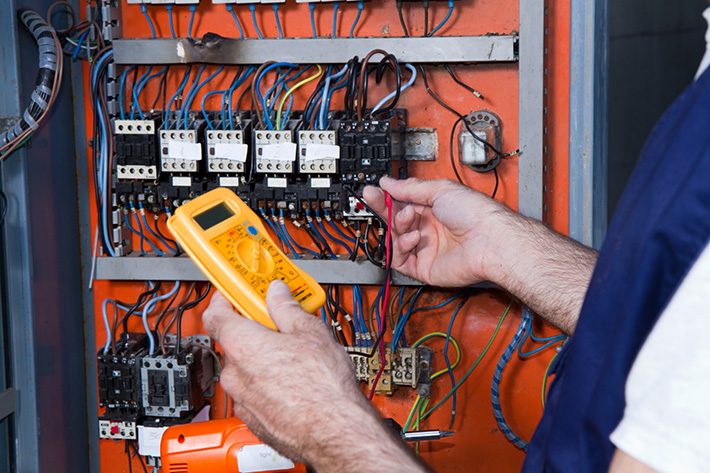Electricity is vital in our modern society, powering our homes, devices, and electronics. Understanding the concept of “electrical load” is crucial for safe and efficient operation in your home. When we understand how it works, we can make better decisions about how we use electricity in our every day lives.
So, let’s explore the definition of electrical load and how it functions in our homes.
What Constitutes an Electrical Load?
In simple terms, the electrical load refers to the amount of power that a device or appliance consumes when it is turned on. This is usually measured in units such as watts (W) or kilowatts (kW). Each electrical device, whether it’s a light bulb, refrigerator, air conditioner, or television, has its own specific electrical load. It represents how efficiently the device converts electrical energy into other forms like light, heat, or mechanical motion.
Varieties of Electrical Loads
Resistive loads refer to appliances that convert electricity into heat. Examples of these include incandescent light bulbs, toasters, and electric heaters. These appliances work by passing electrical current through a resistive component like a heating coil, which in turn produces heat.
Inductive and capacitive loads are commonly found in devices that generate electromagnetic fields or store electrical energy. For example, motors, which can be found in appliances like refrigerators and washing machines, and fluorescent lights. Inductive loads, such as motors, require a high initial current surge before settling into a lower operational current. On the other hand, capacitive loads store electrical energy and discharge it when needed, like in certain power factor correction devices.
The Functioning of Electrical Loads in Our Residences
In our homes, electricity flows through a network of wiring, circuits, and distribution panels. Let’s delve into how this system operates:
Distribution
Electricity comes into our homes from the utility company through a main circuit breaker or fuse box. From there, it is distributed to different circuits that provide power to various parts of the house.
Circuit Wiring
When designing the electrical system in a building, circuits are carefully planned to supply power to specific areas or groups of appliances. The wiring within these circuits is chosen and sized correctly to handle the electrical load safely. For example, heavy-duty appliances like electric ovens require thicker wiring, while lighting circuits can use thinner wiring.
Load Balancing
Proper load management in a household requires distributing the electrical load evenly across circuits to prevent overloading. When there are too many devices connected to a single circuit, exceeding its capacity, it can cause the circuit breaker to trip or the fuse to blow, resulting in a power outage for that specific circuit.
Nowadays, numerous households have systems that allow them to monitor their electricity usage in real-time. This convenient feature provides homeowners with valuable insights into which appliances consume the most power.
Safety Measures
To ensure the safety of electrical loads in our homes, there are important safety mechanisms in place such as circuit breakers and ground fault circuit interrupters (GFCIs). Circuit breakers are designed to automatically cut off power when a circuit becomes overloaded or experiences a fault. This helps prevent electrical fires and potential hazards.
In Sum
Electrical loads are vital for powering essential appliances and entertainment devices in modern households. It is crucial to have a clear understanding of how electrical loads work and effectively manage them to maintain a safe and efficient electrical system in our homes. Being responsible homeowners in today’s electrified world requires load balancing, using energy-efficient appliances, and following electrical safety protocols.
If you have questions about the electrical service in your home or are having electrical issues, the experienced electrical team at Bratcher Electric in Wayne can help. We have background and knowledge in all facets of electrical services and strive to provide safe and efficient services to residents throughout the area. We specialize in backup power systems so that when Michigan weather takes a turn for the worse, you are always prepared!

